- Building a Foundation for Successful Community-Engaged Research
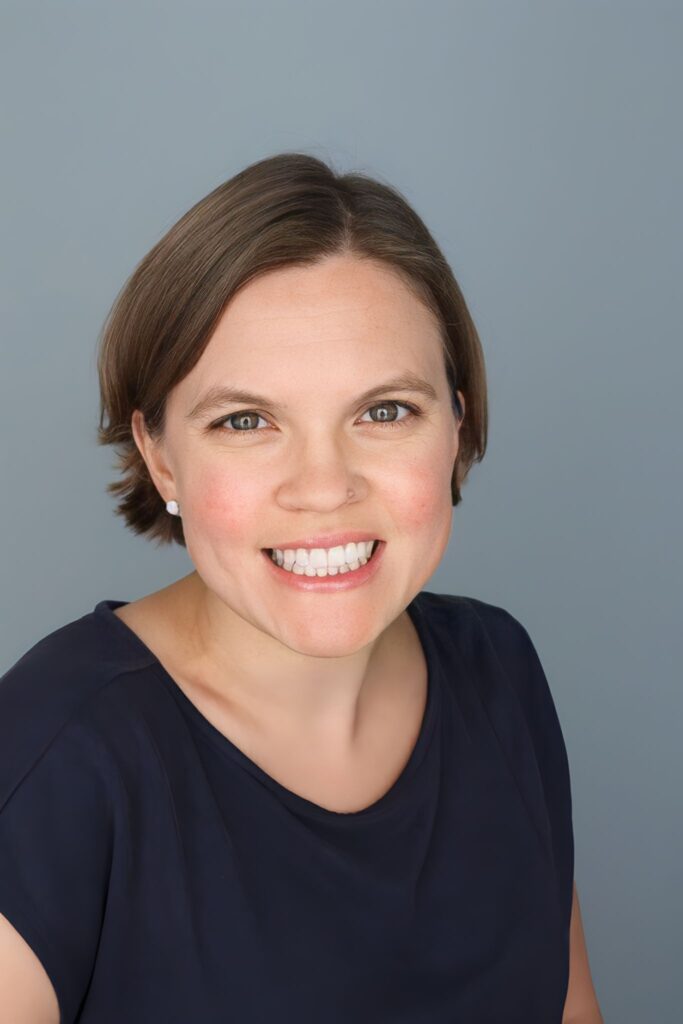
Dr. Rebekka Lee, Director, Community Engagement Program, The Harvard Clinical and Translational Science Center
Dr. Rebekka Lee will share her experiences from her public health program of research and her role supporting community-engaged research across Harvard University. She will discuss strategies for centering community voice and priorities as well as approaches for overcoming barriers to successful partnerships in research.
December 8th, 2025 at 12:00 PM via Zoom
Register here
- Rhode Island Survey Initiative on 2025 Data

Dr. Ashlea Rundlett, Department of Political Science
Dr. Ying Xiong, Harrington School of Communication and Media
Dr. Julie Keller, Department of Sociology
SSRIEP is hosting an event with Dr. Ashlea Rundlett, Dr. Ying Xiong, and Dr. Julie Keller to introduce faculty to the RI Survey Initiative, share 2025 state polling results, and provide a space for networking with other faculty with common research interests in state polling data.
This event has concluded
- Socioeconomic Inequality in Attitudes Toward Support for Older Adults in Guyana
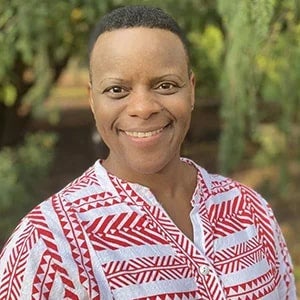
Dr. Nekehia Quashie, Dept. of Public Health, URI
Guyana, an understudied Latin American and Caribbean country, is aging with weak welfare infrastructure support for older adults and a prevailing social norm that the family is primarily responsible for supporting older adults. This study examines the association between individual socioeconomic resources and attitudes toward support for older adults in need across three dimensions: financial, household chores, and personal caregiving.
This event has concluded.
- From Global Health Politics to Comic Book Markets: Making a Meaningful Pivot to the Next Research Project Post-Tenure

Dr. Joseph Harris, Department of Sociology, Boston University
Tenure offers scholars the freedom to pursue research projects completely of their own choosing, yet the drive for tenure carries inertia, and scholars often pursue the same old topics that they did before tenure. This fun and informative talk examines of scholar’s journey learning what is meaningful in research and the consequences of that pursuit.
This event has concluded.
- An Introduction to ICPSR: How to Use ICPSR Data in Your Teaching and Research
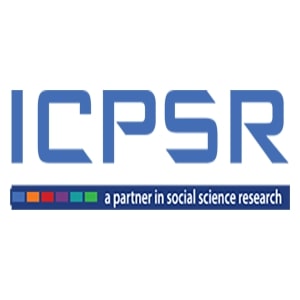
This event has concluded. Contact us to request slides.
- SSIREP Field to Table: Economic Militarization and its Political Consequences

Join Dr. Roya Izadi (Political Science) as she explores a largely overlooked dimension of civil-military relations: the military’s ownership and management of for-profit enterprises. Drawing on original global data, De. Izadi investigates how military involvement in the economy shapes regime durability and incentives for defection. The project offers new insights into the political consequences of military-commercial power.
This event has concluded.
- SSIREP Field to Table: Empowering Employees with Generative AI: Examining the Role of Internal Communication

Join SSIREP as Dr. Joon Kim and Dr. Jegoo discuss their research on employee-oriented mental health. Despite the increasing adoption of generative artificial intelligence (GenAI) tools at the workplace, little is known about how employees view and use GenAI. We conducted a survey study of 700 US full-time employees to investigate how firms’ communication about GenAI with their employees affects employees’ GenAI-related anxiety and intentions to use GenAI at work. The results of our study revealed that firms’ internal communication about GenAI was significantly associated with employees’ perceptions of GenAI and intentions to use GenAI at work.
This event has concluded.
- SSIREP: Advocacy 101 for Women’s Rights (and all human rights)

Kelly Nevins, CEO of Women’s Fund of Rhode Island, will discuss the current state of women in the U.S. and share basic advocacy strategies that can be used to connect with legislators at all levels.
This event has concluded.
- SSIREP Rhode Island Initiative

SSIREP is hosting an event with Dr. Ashlea Rundlett (Political Science), Dr. Ying Xiong (Harrington School of Communication & Media), and Dr. Julie Keller (SSIREP & Sociology) to introduce faculty to the RI Survey Initiative, share 2024 state polling results, and provide a space for networking with other faculty with common research interests in state polling data.
This event has concluded.
- SSIREP Faculty Talk: Christine Zozula on “Speaking of the Dead: Ethics in True Crime.”

Christine Zozula (Department of Sociology & Affiliate with CCJ) will be sharing about her work, “Speaking of the Dead: Ethics in True Crime.”
This event has concluded.
- RI Survey Initiative: How to Use Our State Polling Data in Your Next Project

Emily Lynch (Department of Political Science), Ying Xiong (Harrington School of Communication and Media), and Julie Keller (Department of Sociology & Anthropology) will be discussing “RI Survey Initiative: How to Use Our State Polling Data in Your Next Project.”
This event has concluded.
- SSIREP Field to Table Series: Dr. Barbara Costello
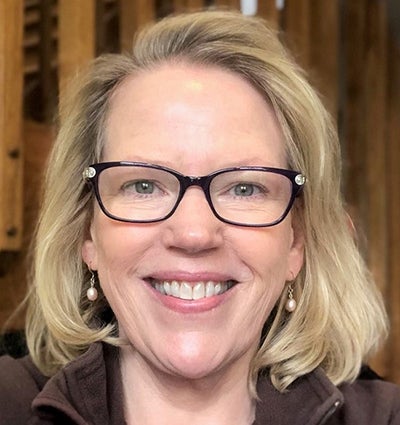
As part of SSIREP’s Field to Table series, Dr. Barbara Costello, Professor of Sociology & Criminology & Criminal Justice (CCJ) will be discussing her research paper titled, “Gateway Drugs or Gateway People? A Qualitative Analysis of Social Processes of Opioid Initiation.”
This event has concluded.
- Information Session about Foundation Funding
Katie McGwin (Associate Director of Corporate and Foundation Relations and BEC Communications) provided helpful information about how the Corporate and Foundation Relations (C&F) office offers aid in garnering potential funding opportunity and writing grant proposals.
- Community-Engaged Research Talk: Rebekka Lee (Director of Community Engagement Program, Harvard Catalyst)
Insights Into and Applications of Community-Engaged Research Programs
- Field to Table: Melva Treviño Peña (Assistant Professor, Fisheries, Animal, and Veterinary Sciences)
Could Expanding Coastal Access Lead to Increased Coastal Stewardship? Insights from Conversations with Coastal Users
- Field to Table: Joon Kyoung Kim (Assistant Professor, Public Relations & Communication Studies) & Jegoo Lee (Assistant Professor, Management)
Examining the Role of Employee-Oriented Mental Health Corporate Social Responsibility
- Faculty Working Paper: Corey Lang & Jarron VanCeylon (Professor & Postdoctoral Researcher, Environmental & Natural Resource Economics)
Voting with Their Feet: Do Partisans Value Neighborhood Public Goods Differently?
- Foundation Funding Info Session (Zoom) with Katie McGwin
Katie McGwin, Associate Director of Corporate and Foundation Relations at URI, provided an info session on foundation funding for your social science research.
- Field to Table (Zoom): Michael DiNardi (Dept. of Economics)
Availability of Telehealth in Substance Use Treatment Facilities and Overdose Mortality During COVID-19
Authors: Michael DiNardi (University of Rhode Island), William L. Swann (University of Colorado – Denver), and Sarah Dzwil (University of Rhode Island)
Abstract:
COVID-19 response exacerbated social isolation and risk of overdose death for people with substance use disorder. Policymakers and health providers counteracted with ramping up substance use treatment via telehealth. We investigate whether increased availability of telehealth in substance use treatment facilities affected drug overdose mortality rates during COVID-19. Methods: We use difference-in-differences regression to compare drug overdose mortality per 100,000 population over 2014-2020 in nearly all US counties with different rates of substance use treatment via telehealth in 2019, with survey data from the National Survey of Substance Abuse Treatment Services. We also examine differences across racial and ethnic groups and whether Medicaid expansion states had a moderating effect. Results: The total number of telehealth facilities per 100,000 population nearly doubled from 1.14 in 2019 to 2.52 in 2020, and we estimate that one additional telehealth treatment facility per 100,000 in 2019 is associated with 1.3 additional telehealth facilities per 100,000 in 2020, an effect that is statistically significant at the one percent level. The difference-in-difference estimate does not show a statistically significant effect of telehealth-providing substance use facilities on opioid mortality rates in 2020. At a 95 percent confidence level, we are unable to detect effect sizes of one additional telehealth-providing facility decreasing the opioid mortality rate by 0.23 per 100,000 population, an effect that is less than 2.4 percent of the sample mean (9.8 per 100,000 population).
- Faculty Working Paper (Zoom): Niku T’arhechu T’arhesi (Dept. of Sociology & Anthropology)
Discussant: Christian Gonzales (Dept. of History)
For a Better Sunrise: The Bonfire Revolution in Cheran
Abstract:
Niku T’arhechu T’arhesi, Postdoctoral Fellow in the Department of Sociology & Anthropology, will present Chapter 1 from the book he is writing: For a Better Sunrise: The Bonfire Revolution in Cheran. After enduring years of extortion, disappearances, and murder, the P’urhépecha community of Cheran in Michoacan, Mexico took up arms in 2011. For a Better Sunrise examines the sequence of events and cultural mechanisms underlining how the Cheran P’urhépecha successfully overthrew a nefarious triad of drug cartels, clandestine loggers, and corrupt politicians. T’arhechu T’arhesi argues that two factors made possible what he refers to as the bonfire revolution: first, a tacit cultural model derived from a cognitively salient subsystem of spatial morphemes in the P’urhepecha language; second, a concerted interpersonal effort to not just survive violence and exploitation, but ultimately thrive.
- Nina Eichacker: “Climate Change, Distributional Inequity, and Balance Sheet Crises”
Co-authored: Nina Eichacker, University of Rhode Island; John Hogan Morris, University of Nottingham
Full Title:
“Climate Change, Distributional Inequity, and Balance Sheet Crises: Using Black Swan Lessons to Avoid Green Swan Inequities”
Abstract:
Climate change is likely to trigger balance sheet crises as the propensity for and scope of natural crises increases in the near and medium term. This paper uses Keynesian theories to argue that governments and central banks should use expansive policies to stabilize domestic and global economies that may result from both physical and financial consequences of climate change. This paper takes lessons from the Global Financial Crisis and the Coronavirus Pandemic to suggest how governments and central banks have learned some positive lessons in how to more equitably sustain economic activity. It also highlights the global inequity of recent responses to the COVID-19 pandemic. While higher-income economies emit most global carbon emissions, and while lower-income economies are generally at higher risk of natural calamity as a result of climate change, more expansive fiscal and monetary responses to the risks of climate change will yield improvements for developed and developing economies alike. If governments and central banks proactively shift economies away from carbon-emitting activities while increasing relief efforts to help domestic and foreign non-financial interests, economic growth, social welfare, and global equity may all improve.
- Ximena Sevilla: “From the Americas to Europe: Indigenous Stakeholders and the Politics of Recovering Indigenous Knowledge and Material Culture”
For Professor Ximena Sevilla’s presentation: “From the Americas to Europe: Indigenous Stakeholders and the Politics of Recovering Indigenous Knowledge and Material Culture”
Abstract:
Based on field and archival research in Spain, Portugal, and Colombia, this presentation will address the politics at the national and local level centered on the recognition of indigenous people’s right to reclaim material artifacts from the colonial period perceived as markers of their own identity.
- Patrick Baur: “Purity vs. Plurality at the Intersection of Food Safety and Urban Agriculture”
Abstract
Urban food provisioning systems hold the promise to engender community practices of care that weave people and environments together in complex networks that recognize a plurality of functions and values for urban agriculture. I explore how embracing plurality may pose an alternative modality to and source of resistance against purity politics in food systems, focusing specifically on the advance of the food safety regime into urban agriculture. As this regulatory regime has colonized conventional food systems, it has demonstrated ecologically, economically, and socially unsustainable tendencies. Yet an alternative to the food safety regime’s powerful moral imperative to protect public health from all forms of “contagion” has remained elusive. In interviews with 24 urban farmers and community gardeners in 9 US cities, however, I encountered a diverse array of perspectives on safety. I find that many urban agriculturalists frame safety as a multi-faceted construct encompassing other dimensions of protection: personal security, preservation of environmental integrity, shelter from discriminatory violence, and security of land tenure. Some further situate safety as just one beneficial function among many that urban food provisioning systems should perform in order to properly care for human and environmental well-being. Against this pluralist perspective that recognizes a pragmatic need to balance diverse priorities, the food safety regime seems to be engaged in a well-meaning but potentially damaging colonization of urban agriculture and gardening. At stake is a narrowing and siloing of emergent social-ecological relations of care and a corresponding loss of not just multifunctionality but the potential for general community revitalization built upon novel and vibrant local foodways.
- Faculty Working Paper: Jegoo Lee (Assistant Professor of Management, College of Business)
Discussant: Michael DiNardi (Assistant Professor, Department of Economics)
CEO Risk Factor and Employee-Oriented Corporate Social Responsibility: The Moderating Conditions of CEO Backgrounds and Industrial Characteristics
Abstract:
This paper proposes and tests a modified version of the risk-management approach to corporate social responsibility (CSR), applied to the relationship between chief executive officer (CEO) and employees. The risk-management perspective for CSR argues that firms enhance CSR engagements to mitigate possible unfavorable outcomes from its risk factors. Still, we don’t know much about whether and how CEOs mitigate their risk factors by improving employee-oriented CSR (E-CSR). In order to fill this gap, this study examines two moderating conditions for the CEO risk-taking incentives and E-CSR link: (a) CEO backgrounds and (b) industrial characteristics. We test the proposed hypotheses with a longitudinal dataset of over 17,000 observations of large U.S. corporations for the period 1996-2016. The empirical findings offer a people-version of risk-management approach to CSR. Both theoretical and practical implications for CEO compensation and E-CSR are discussed.
- Field to Table: Steven A. Cohen (Associate Professor, Dept. of Health Studies)
Rurality as a Correlate of Health Disparities
- Faculty Working Paper: Karen Sweeting (Assistant Professor, Dept. of Political Science)
Discussant: Sean Edmund Rogers (Spachman Professor of Human Resources and Labor Relations)
Abstract:
Neutrality has developed problematic incongruities and evoked competing narratives in public administration discourse. Organizations often fail to recognize that neutrality promotes disparities through impartiality, indifference, and discriminatory blindness (i.e., cultural, color, race, gender, age, ethnicity, religion, and immigrant status). This has contributed to normalizing discrimination and disparities based on a lens that veils its negative impacts and outcomes for marginalized groups and communities. This article builds upon Senge’s (2006) research and introduces neutrality as the eighth organizational learning disability. Neutrality is examined as a vehicle through which biases, stereotypes, prejudices, and discrimination are continually injected and normalized in the social, administrative, and political institutions of public administration. This article has two major themes. One is the focus on the veil of neutrality as an organizational disability. Two is cultural competence and a commitment to intentional action in more sensitive ways to develop greater cultural awareness, inclusivity, competence, equity, and justice.
- March Toward Policy Advocacy! Advocacy 101: The Basics of Advocating for Change
An interactive workshop with Kelly Nevins, CEO of Women’s Fund RI.
Does the idea of reaching out to your elected leaders to talk about something you care about make you anxious? Want to know where to start? Join Kelly Nevins, CEO of Women’s Fund of Rhode Island, who will walk us through the advocacy process while focusing on the need for financial gender equity. We’ll break into chat room/small groups to practice some of the concepts. By the end of the session, you’ll realize how easy it is to connect with your elected leaders on topics they need to hear from you about!
 About Kelly Nevins: Kelly Nevins has been a leader in the RI nonprofit sector since 1990, with expertise in strategic development, motivating teams and individuals, workplace equity and community relations tools, program development and public speaking. She holds a Master’s degree in Education, as well as in Leadership.
About Kelly Nevins: Kelly Nevins has been a leader in the RI nonprofit sector since 1990, with expertise in strategic development, motivating teams and individuals, workplace equity and community relations tools, program development and public speaking. She holds a Master’s degree in Education, as well as in Leadership.The CEO of Women’s Fund of Rhode Island since 2016, Nevins often speaks about the status of women and girls, why investing in women pays off, and using a gender lens to create systems change. She has presented at the WomenFunded International Conference, the Bryant University Women’s Summit, Lifting the Voices of Women in Science & Medicine Conference and frequently is featured on local programming and as a speaker to local community groups. She was honored in 2020 as Social Sector Industry Leader by Providence Business News and received the Secretary of State’s Medallion Award. In 2021, she was named as a fellow of Women Leaders of the World and the RI Nonprofit Innovation Lab.
Nevins serves on the Providence Mayor’s Equal Pay Task Force. She is the Vice Chair for the RI Coalition for Reproductive Freedom, and serves on the boards of the United Way of Rhode Island’s Community Advisory Board, Grant Makers Council of RI, and Women’s Funding Network. She is also an active member of the Providence Chapter of the NAACP.
- March Toward Policy Advocacy! A Panel Discussion
A conversation on policy advocacy in Rhode Island with local luminary policy advocates Wendy Becker, Denise Crooks, and Volta Tran.
- Date: March 4, 2022
- Time: 2:30 PM EST
- Location: This event was on Zoom and has concluded.
Our panelists will discuss their extensive experience with policy advocacy in Rhode Island, reflect on how they first got involved in this work, and provide tips for how to get students engaged in local issues. Join us for an event which will be of interest to faculty and students preparing for careers in policy alike.
Volta Tran Denise Crooks About our panelists:
- Volta Tran (pictured above, at left) is a Trans Health Education and Policy Specialist at Thundermist Health Center, facilitator of the RI Trans Action Coalition, and a board member of SAGE RI (Advocacy & Services for LGBTQ+ Elders). She received a 2021 NASS (National Association of Secretaries of State) Medallion Award for her work developing TransVoteRI.com, a resource for trans and non-binary voters in RI that includes a guide on how to update one’s ID documents.
- Denise Crooks, (above, right) MPH, LICSW is a social worker with a focus on providing care to transgender and gender diverse Rhode Islanders. She is also the Co-Director of the LGBTQ Scholarly Concentration at Brown University’s Alpert Medical School. Since 2016, Denise has organized for policy change at the state level to improve the lives and well-being of LGBTQ+ Rhode Islanders including passage of a bill to ban conversion therapy, passage of the Rhode Island Uniform Parentage Act, and the addition of non-binary gender markers on state IDs. She is also a co-founder of two policy advocacy organizations, LGBTQ Action RI and Rhode Islanders for Parentage Equality.
- Wendy Becker, PhD, MSW, is an Associate Professor of Social Work at Rhode Island College where she teaches social work practice and policy. She was the founding Director of Youth Pride, an organization for LGBTQ youth and has been working on legislative and institutional change and equity for the last 35 years. Among key legislative and policy change efforts, she was involved in campaigns to pass the RI’s civil rights bill, secure marriage equality and parentage equality, improve school climates, and ban conversion therapy.
- Foundation Grants and You
Representatives from the URI Foundation share helpful tips for finding the right foundation and making the best of your application.
- Date: March 2, 2022
- Time: 12:00 PM EST
- Location: This event was on Zoom and has concluded.
- Faculty Working Paper: Chelsea Farrell (Assistant Professor, Department of Criminology and Criminal Justice)
Discussant: Christopher Parker (Assistant Professor & Pre-Law Advisor, Department of Political Science)
Use of Force during Terry Stops: Examining the Role of Suspect Demeanor and Race
- Date: February 18, 2022
- Time: 3:00 PM EST
- Location: This event was on Zoom and has concluded.
Abstract:
Suspect demeanor has been shown to impact police-citizen encounters, including traffic stops and arrests, but research has yet to examine the role of suspect demeanor on officer actions during a Terry stop (i.e., stop, question, and frisk). Using 2018-2020 NYPD Stop, Question, and Frisk (SQF) data, this study examines predictors of demeanor, the relationship between suspect demeanor and police use of force during a SQF and whether this relationship varies across suspect race. Results demonstrate that race is significantly associated with officer perceptions of suspect demeanor and demeanor impacts the likelihood of using force. Specifically, suspects perceived to be calm by officers are significantly less likely to experience physical force and suspects perceived to be upset, angry, furtive, or non-compliant/aggressive are significantly more likely to experience physical force during a SQF. Although race was found to significantly predict demeanor, suspect race does not appear to moderate the impact of demeanor on use of force except for a non-compliant/aggressive demeanor which does vary significantly across race and ethnicity. Net of key covariates, including whether the person being stopped is suspected of a violent or weapon-related crime, officers are 73% more likely to use force against non-compliant or aggressive Black suspects when compared to non-compliant or aggressive White suspects (OR = 1.73*). Similarly, the odds of experiencing force during a SQF are 106% (OR = 2.06**) higher for non-compliant or aggressive Hispanic suspects than non-compliant or aggressive White suspects.
- Faculty Working Paper: Hans Saint-Eloi Cadely (Associate Professor, Dept. of Human Development and Family Science)
Discussant: Nicole Weiss (Assistant Professor, Dept. of Psychology)
Abstract:
Although for nearly three decades fewer adolescents are reporting to have sex, reports of adolescent engagement in sexual intercourse within the United States remains high. For instance, approximately over 40% of adolescents between the ages of 15-19 indicated to have had sexual intercourse during the period of 2011-2015 (Centers for Disease Control and Prevention, 2018). Many adolescents who are having sex are seeking these experiences within casual/noncommitted relationships. Adolescent involvement in noncommitted relationships is associated with sexual risk-taking (e.g., lack of contraceptives during sex) (Manlove et al., 2007; Manning et al., 2000). Such factors stress the need to understand casual sexual relationships during adolescence.
Saint-Eloi Cadely et al. (2020) recently investigated associations between insecurities, beliefs, and attitudes about sex and romantic relationships and sexual risk indicators (i.e., age at first sex, number of sexual partners, condom use, length of time with sexual partner, seriousness of relationship, and frequency of sex). Results showed that endorsing healthy sex attitudes (e.g., not rushing to have sex) served as a protective factor against sexual risk-taking; such participants reported less sexual partners, had sex for the first time at an older age, and knew their partner longer before having sex. Insecurities emphasizing on the loss of independence and fear of rejection were related to less commitment to the relationship prior to having sex. Lastly, holding constraining relationship beliefs (e.g., love is enough to sustain a relationship) was associated with less condom use and greater sex frequency.
The present study expands on these findings by examining whether these associations vary between male and female adolescents within committed and noncommitted relationships. Participants were 801 sexually active adolescents who indicated to have had vaginal sex within 30 days prior to data collection (Age range: 14-20 years old; M = 16.25 years old, SD = 1.04; 53.6% females; 43.6% European American and 55.9% identified as an ethnic minority). Participants were grouped based on gender and whether they were having sex within a serious or noncommitted relationship. Results indicated that healthy sex attitudes were related to fewer sexual partnerships and knowing one’s partner longer before sex across groups (except males in noncommitted relationships). However, the association for length of time knowing the partner was stronger for females and strongest for females in noncommitted relationships. Lastly, the associations between romantic attachment insecurity, constraining relationship beliefs, and sexual risk-taking varied across gender and relationship groups. Results of the present study contribute to current understanding of adolescent involvement in noncommitted relationships and provide implications for prevention and intervention programs targeting adolescent sexual risk-taking.
- Field to Table: Katie McIntyre (Associate Professor, Department of Gender and Women’s Studies)
Abstract:
From their emphasis on patriotic holidays, support for women’s suffrage, sports programming, and close ties to the Secretaría de Educación Pública (SEP), Protestant schools closely aligned their mission with Mexico’s postrevolutionary nationalist and anticlerical goals. An examination of physical education at girls’ schools provides transnational insight into Protestant women’s roles in postrevolutionary Mexico. Suffrage, temperance, girls’ educational, recreational, and labor opportunities, and social work were all areas that Methodist women’s organizations focused. Founded in the 1870s and 1880s, Methodist girls’ school became successful mobilizing structures for women’s rights following the 1910 Mexican Revolution. Through the lens of Methodist education, this paper examines the intersection of transnational suffrage movements, sports, revolutionary nationalism, and new debates about the role of Protestantism in Mexico. In particular, this paper explores girls’ basketball organizing from the consolidation of the Mexican Revolution in 1920 through the close of the Cárdenas presidency in 1940, focusing on three Methodist schools: Normal Metodista de Señoritas in Puebla, Hijas de Allende in Pachuca, Hidalgo, and Colegio Juárez in Guanajuato. This presentation is a partial chapter draft from my manuscript in progress, “Protestant Women and Political Activism in Mexico, 1900-1955”.
- Living with False Discoveries in Social Sciences: A Report from the Field of Financial Economics
A presentation of research from Shingo Goto (Associate Professor of Finance, College of Business)
Abstract:
Researchers in many scientific disciplines are increasingly concerned about the probability of making erroneous decisions after testing a large number of hypotheses. Both false discoveries of spurious effects (false positives; Type I errors) and false omissions of true effects (false negatives; Type II errors) are inevitable outcomes of statistical tests. But a serious concern arises when researchers misuse or abuse a single-hypothesis testing rule, e.g. “rejecting the null hypothesis at the 5% significance level,” to report only positive results after testing multiple hypotheses”—a practice called the “p-hacking.” About a decade behind medical research, the multiple-testing problem now receives strong attention in many social science disciplines, where numerous researchers are hunting for predictive relationships in the jungle of Big Data.
P-hacking and HARKing (Hypothesizing After the Results are Known) are quite unavoidable in our profession and it is worthwhile discussing how we can measure and control their effects in scientific reporting. From practitioners’ standpoint, suppressing the risk of false discoveries (e.g. due to p-hacking) may increase missed discoveries (false negatives). In a recent study, Shingo and his co-author employ a data-mining strategy to generate over 15,000 financial (accounting) ratios for each US public firm and examine if these ratios help predict the firm’s subsequent stock returns both in-sample and out-of-sample. Along the way, they find that about 44% (or 28%) of the “significant” findings at the 5% (or 1%) significance level are actually false. Meanwhile, they find a substantial number of false negatives, too.
This presentation will draw on recent research in empirical asset pricing (a field of financial economics), but Shingo will strive to make the presentation as non-financy as possible. Shingo will focus on general methodologies of analyzing multiple-testing problems and controlling false discovery rates. Some of these discussions should also be applicable to empirical research in many social science disciplines beyond financial economics.
- Faculty Working Paper: Nina Eichacker (Assistant Professor, Department of Economics)
Discussant: Daniel Carrigg (Lecturer, Department of Political Science)
Abstract:
In times of economic crisis, academics, policy makers, and pundits invoke the notion of ‘fiscal space’ when they ask how much government debt is too much. However, if fiscal policy is an important tool for responding to crises and inducing economic growth, then it is important to safeguard governments’ abilities to spend without worrying that increasing government debt will negatively affect future attempts to deploy it. This paper argues that though many popular assessment strategies of fiscal sustainability rely on ad hoc assessments of what amount of debt is desirable or allowable, governments often face constraints on fiscal expenditure in practice. These constraints may be legal — self-imposed or otherwise contingent —like balanced budget laws; financial, real, or perceived consequences in bond markets; and even potentially monetary if central banks accept or apply limits on sovereign bonds as collateral for funding operations. In an economy like the US, these constraints may appear at the state or municipal level; elsewhere, exorbitant privilege, size of GDP, and issuance of vehicle currency status together may influence the space an economy has to engage in deficit spending without incurring rising financing costs. Past experiences of financial crises and monetary constraints may induce future conservatism that is itself detrimental.
- Field to Table: Brendan Skip Mark (Assistant Professor, Department of Political Science)
Unpacking Repressive Repositories: Outside Agitators
Abstract:
Leaders have a large set of tools that make up their repertoire of repression. One such tool is framing dissidents as “outside agitators.” Outside agitators are defined by two characteristics: first, they are not part of the group making demands of the state, but are some “other” who either do not share the goals of the group or come from elsewhere and have no right to make demands; second, they seek to agitate state-citizen relations and stir up trouble. This tool is often used by authoritarian leaders in response to social movements, but has also historically been used in the United States against Black protest movements. The use of the outside agitator narrative seeks to delegitimize the demands of dissidents and to reduce public opinion backlash when leaders use other repressive tools. This presentation explores the results of a 2,000 person survey experiment carried out in the United States which explores how the framing of protesters as outside agitators shapes public opinion on state repression. I find that most Americans believe outside agitators were frequently present at Black Lives Matter protests that occured during 2020. The findings also suggest that framing protesters as outside agitators has little to no cost to leaders even when evidence directly contradicts the outside agitator claim; in most instances allegations of outside agitators reduces public backlash against state repression. These findings help to unpack the costs and benefits of using the outside agitator narrative to pre-empt and justify repression.
- Faculty Working Paper: Smita Ramnarain (Associate Professor, Department of Economics)
Discussant: Ping Xu (Associate Professor, Department of Political Science)
Crises of Social Reproduction, Gender, and Workfare: Understanding the Impact of NREGA
Abstract:
The COVID-19 pandemic has underscored the vital importance of social protection programs such as workfare in mitigating crises. And yet, acute crises such as pandemics are layered upon existing vulnerabilities and inequalities of gender, race, caste and ethnicity. In this paper, we consider how one of the largest workfare programs in the world, the Mahatma Gandhi National Rural Employment Guarantee Act (MGNREGA, or NREGA) in India, was embedded within a prolonged and chronic agrarian crisis in the pre-COVID period, with particular class, gender and caste implications. Applying a social reproduction feminism (SRF) framework to the crisis literature enables us to illustrate how the agrarian crisis was a crisis of social reproduction for labor, and how the gendered and caste-based organization of reproductive labor in response to the chronic agrarian crisis created distinctive outcomes for the participation of marginalized groups in NREGA. The empirical links we detail between the pre-COVID agrarian crisis, and women’s and marginalized castes’ participation in NREGA suggest that social protection programs that do not consider the labor of social reproduction, and are unaccompanied by broader forms of socialization of such labor may fall short of mitigating deep-rooted inequalities.
- COVID-19 and the Future of Higher Education
Featuring David Bergeron, URI alumnus and Former Assistant Secretary for Postsecondary Education during the Obama administration
Abstract:
Disruptions have happened in higher education before. Hurricane Katrina, 9/11, and the 2008-09 recession each have had profound impacts on higher education. What can we learn from recent disruptions? And what does that tell us about the days ahead in response to COVID-19?
David A. Bergeron served as the assistant secretary for postsecondary education at the U.S. Department of Education during the Obama Administration. In this position, Bergeron acted as the education secretary’s chief adviser on higher education issues and administered more than 60 grant and loan programs that provide nearly $3 billion annually to institutions of higher education and community-based organizations. He currently serves as a senior fellow for Postsecondary Education at the Center for American Progress. A link to Bergeron’s full bio can be found here.
- SSIREP Research Workshop: Pete Vechsuruck (Assistant Professor, Department of Economics)
Discussant: Pengfei Liu (Assistant Professor, Department of Environmental and Natural Resource Economics)
Wage Share Decomposition in Developing Countries
Abstract:
In contrast with conventional economic theories, functional income distribution—the shares of income between labor and capital—has been not constant in the past four decades. In particular, the labor shares of income have been falling in many developed and emerging economies, including countries in East Asia, where many scholars used to praise their economic regimes as ‘growth with equity.’ The empirical data thus far shows that the story has diverged. When Taiwan experienced the declining trend of the labor share, Thailand and South Korea experienced increasing trends. This paper therefore explores the role of structural change in explaining aggregate wage share growth in those three countries by using accounting methods to decompose real wage and labor productivity growth into their sectoral components. The wage share growth is decomposed into contributions from changes in sectoral real wage and sectoral labor productivity. The shift-share analysis of the wage share focuses on the within-sector and the reallocation effects for Thailand, South Korea, and Taiwan using data dating back to the early 1980s.
- SSIREP Research Workshop: Erik Loomis (Associate Professor, Department of History)
Discussant: Aaron Ley (Associate Professor, Department of Political Science)
Whose Oregon Is It: Field Burning, Logging, and Environmentalism in the 1980s
Abstract:
The Pacific Northwest’s economy grew in the postwar period based around a white working class economy with moderate politics and natural resource production. This began to change in the 1960s as the region became attractive to the counterculture and people looking to enjoy an outdoor lifestyle. But the industrial methods of logging, agriculture, fishing, and other industries threatened the region’s natural beauty. With the rise of hip capitalism beginning to transform the region as well by the 1980s, political battles over the natural resource economy grew and came to dominate the region’s poltiics. This paper looks at the Willamette Valley and adjacent communities in western Oregon to demonstrate how this played out, particularly over the practices of clearcutting timber and burning grass seed fields. It uses these issues as a case study in environmental and class politics as part of the nation’s growing political polarization that, in Oregon, culminated in the 2016 takeover of the Malheur National Wildlife Refuge by right-wing extremists. It provides a close read of city, county, and state politics to demonstrate the inconsistencies and contradictions in how the region’s residents responded to these issues, ultimately looking at an important question under constant debate in these years: Who does Oregon belong to?
- SSIREP Research Workshop: Michael DiNardi (Assistant Professor, Department of Economics)
Discussant: Kristin Johnson– Associate Professor, Department of Political Science
Public Health Improvements and Childhood Mortality: Does Timing Matter?
Abstract:
Several seminal papers have shown that water and sanitation programs have an important effect on childhood mortality. All of these studies, however, estimate the contemporaneous effect of these projects on mortality rate, without considering, explicitly, effects derived from exposure in previous periods, in particular, from prenatal exposure. We find that the length and, particularly, the timing of the exposure to these programs matter significantly. In particular, children who are exposed to filtrated water since they were in utero exhibit significantly larger benefits. We also find the effects increase with the age of death. This study contributes to understanding the relationship between diarrheal diseases and childhood mortality and provides evidence that water and sanitation programs are more cost-effective in the long-term than previously believed and that diarrheal diseases affect children before they are born.
- Working Paper Workshop: Ethnic Media, Co-Minorities, and the Black Lives Matter Movement: Fostering Division or Commonality?
Authors: Suzanne E. Scoggins (Assistant Professor of Political Science, Clark University); Heather Silber Mohamed (Associate Professor of Political Science, Clark University), presenting.
Abstract:
Periodicals targeting Latinx, Asian, and/or Black communities in the U.S. frame news stories distinctly for community members, with both Spanish- and Chinese-language press helping to provide a “roadmap” for immigrants incorporating into the U.S. While current research focuses on press coverage of the needs of co-ethnics, it does not explore how ethnic media covers the needs or interests of other marginalized racial/ethnic groups (co-minorities). Importantly, we know little about how the Spanish and Chinese language press portray issues pertaining to other co- minorities, such as the Black community. Focusing on the Black Lives Matter protests that occurred across the U.S. in the summer of 2020, we utilize content analysis of a preliminary sample of ethnic media publications targeting the Latinx and Chinese American communities to explore key questions of news portrayal of issues related to a co-minority group. Will this coverage emphasize or downplay commonalities shared by distinct marginalized groups? How will tone of coverage vary, based on which group is the target audience? Consistent with theories of the racial hierarchy in the U.S., we anticipate that in comparison to media targeting the Chinese American community, the Latinx press will do more to foster a sense of commonality with the BLM movement.
- Sunday Talk: Reimagining Elections
Featuring community members the honorable Angela McCalla, Cherie Cruz, Cristin Langworthy, Alex Taylor and Nick Lima.
Abstract:
How do we sustain high levels of participation? How can we improve our democratic structures so they work for everyone? How do we build new ways of engaging people in the people’s business? How do we ensure transparency and allow for meaningful dialogue in our civic structures? What has COVID-19 taught us about technology and civic engagement?
Join SSIREP and Common Cause Rhode Island for part of a series focused on reimagining timely civic engagement topics:
Following the event, Common Cause will share commentary from Professor John Caserta, Dr. Gretchen Matcha and Secretary of State Nellie Gorbea. - SSIREP Research Workshop: Hans Saint-Eloi Cadely (Assistant Professor, Department of Human Development and Family Science)
Discussant: Nicole Weiss, Assistant Professor, Department of Psychology; Clinical Psychology
The Influence of Pre-College Behaviors and Parenting Practices on Alcohol Use, Sexual Behaviors, and Adverse Outcomes Among First-Year College Women
Abstract:
By intertwining the life course perspective with problem-behavior theory, the present study examined the influence of pre-college experiences with alcohol and parent-adolescent relationships on emerging adults’ engagement in alcohol use, risky sexual behaviors (i.e., having sex without a condom and having multiple sex partners), and having experienced intimate partner violence (IPV) and/or sexual violence (SV) during their first semester of college. Participants were 229 college freshmen women between the ages of 18-21 years old (69.0% White, 4.4% Black, 16.6% Hispanic/Latino, 24.8% Asian/Pacific Islander, and 1.7% Mixed/More than one race). Results indicated that pre-college experiences with alcohol was related to binge drinking (having four drinks in a row) and regretful behaviors while drinking during women’s first semester of college. Students who reported being close to their mother were less likely to binge drink during their first semester of college. Parent-teen communication about avoiding dangerous situations and being safe decreased their kids’ likelihood of experiencing SV and doing something that they later regretted while under the influence of alcohol. Constant drinking the month prior to data collection and regretful behaviors under the influence of alcohol increased the likelihood of binge drinking, engaging in regretful behaviors under the influence of alcohol, and experiencing SV during women’s first semester of college. Lastly, being the first sibling to attend college reduced the likelihood of binge drinking during the first semester of college. These findings suggest that earlier experiences with alcohol and parental behaviors can shape college women’s experiences during college.
- Teachers, Learners, Citizens: Discussing the election with our students
With Drs. Brendan Skip Mark, Marc Hutchison, Brian Krueger, and Shanna Pearson-Merkowitz (Political Science)
Abstract:
Do you find yourself overwhelmed by how to talk with students about the election? We are currently in unprecedented social and political times, and in a highly polarized information environment. How do we engage proactively with our students in these moments? How will we handle our role as mentors and teachers in the days immediately following the election when, no matter what the outcome, students may find themselves pitted against one another, fearful, and profoundly upset? The Faculty Development team at the Office for the Advancement of Teaching and Learning (ATL) is proud to partner with the Social Science Institute for Research, Education and Policy (SSIREP) in facilitating this town-hall style discussion. Featured panelists will share their different takes on how they discuss elections with students, and we hope the session will encourage authentic conversation and co-creation of actionable strategies. We look forward to a thought-provoking and important discussion!
- SSIREP Research Workshop: Natalie Pifer (Assistant Professor, Department of Criminology and Criminal Justice)
Discussant: Robert W. Widel, Jr. (Associate Professor, Department of History)
Hybridizing Care and Control: Criminal Justice Development in Transinstitutionalization’s Wake
Abstract:
Much research analyzes the criminal justice system’s contemporary role in managing the mentally ill. Collectively, this scholarship traces how the criminal justice system arrived on the front-lines of this social problem in the wake of the policy of deinstitutionalization and identifies the ways in which the system has mismanaged its inherited responsibility. Under the “transinstitutionalization” thesis, jails and prisons are conceptualized as the new asylums and police work as “street corner psychiatrists”. Yet, the criminal justice system is concerned with punishment and poorly equipped to preform care functions. Rather than examine the causes of and challenges of transinstitutionalization, I analyze how it has reshaped the contours of the criminal justice field to understand contemporary developments in the criminal justice system. I trace the contours of transinstitutionalization’s ripples throughout the criminal justice field by analyzing two reforms to policing and incarcerating the mentally ill: a specialized Los Angeles Police Department unit focused on policing the mentally ill and a planned state-of-the-art Los Angeles County jail facility focused on mental health treatment. I argue that these reforms reveal a shift in how the field manages the mentally ill and function to re-entrench rather than reform its role on transinstitutionalization’s frontlines.
- 2020 Presidential Debate Virtual Watch Party
Featuring commentary from Drs. Emily Lynch, Marc Hutchison, Julie Keller, Skip Mark, Emily Diamond, Ric McIntyre, and Shanna Pearson-Merkowitz
Join us at the 2020 Presidential Debate Virtual Watch Party to watch and discuss the final presidential debate on Thursday, October 22.
SSIREP is proud to host the first-ever Presidential Debate Virtual Watch Party for the URI community. The party kicks off with a lively pre-debate discussion where faculty will share their expertise on political issues that will be debated on stage. Once the debate begins, faculty will provide commentary in real time. Student organizations will weigh in on the issues and candidates in the pre-debate and post-debate discussions. We will end the debate bash with Q&A from the audience. - SSIREP Research Workshop: Skip Mark (Assistant Professor, Department of Political Science)
Discussant: Nina Quinn Eichacker (Assistant Professor, Department of Economics)
- Should I Stay or Should I Go Now? Remittances and Protests Against IMF Austerity
- Article link: Should I Stay or Should I Go-1.1
Abstract:
Why do some states that undertake IMF loans experience unrest, while others see little domestic backlash? Scholars generally agree that economic crisis leads to an increase in domestic unrest, and that unrest will be greater when crisis is accompanied by IMF lending. However, some states have managed to avoid unrest under economic crisis and IMF loans. This paper argues that states receiving large remittance inflows are less likely to experience unrest under IMF lending. When an IMF program is undertaken, citizens often see their standard of living fall, social safety nets decline, and human rights deteriorate. Remittances substitute for weakening social safety nets and declining economic rights respect, which mitigates the incentives to protest. Further, those most likely to migrate and send remittances home are unemployed men who would otherwise engage in protest. We argue that migration and remittances offer an explanation of variance in protest among IMF borrower states. When citizens migrate and send wages home, domestic unrest declines.
- SSIREP Research Workshop: Hans Saint-Eloi Cadely (Assistant Professor, Human Development and Family Studies)
Discussant: Christine Zozula (Associate Professor, Department of Sociology and Anthropology)
Abstract:
Despite decreases in the prevalence of adolescent engagement in sexual intercourse during the past decade, recent reports indicated that approximately 40% of adolescents have had sex at some point in their lifetime (Centers for Disease Control and Prevention, 2018). Such adolescents are likely to engage in risky sexual behaviors ranging from frequent sexual activity, less condom use during intercourse, having numerous sexual partners in their lifetime, beginning to have sex at a young age, and having sex only after getting to know one’s partner for a short period of time (Feeney, Peterson, Gallois, & Terry, 2000; McElwain, Kerpelman, & Pittman, 2015; Tracy, Shaver, Albino, & Cooper, 2003). Thus, the aim of this paper is to further understand what factors can exacerbate adolescents’ engagement in risky sexual activities.
-
- Two studies are currently under completion in order to address this phenomenon. Study 1 examines whether adolescents’ attitudes and beliefs regarding relationships and sex are related to their engagement in risky sexual behaviors. Adolescents’ perceptions on relationships and sex are examined based on their reports of discomfort with intimacy, dependency on the relationship, healthy sex attitudes (e.g., “It is risky for young teens to have sex”), and faulty relationship beliefs (e.g., “There is a “one and only” right person in the world for me to marry”). Analyses are being conducted across two separate cohorts of adolescents from a Southern state between the ages of 13-20 years old (Cohort 1: M = 16.51; SD = 1.06, Cohort 2: M = 15.77; SD = .96). Results indicate that high levels of discomfort with intimacy are related to having sex before being committed to one’s partner, knowing one’s partner for a brief period of time before having sex, and consistent use of a condom during intercourse. High scores on dependency on the relationship are related to less condom use during intercourse. High scores on healthy sex attitudes are related to high scores in getting to know one’s partner before having sex, beginning to have sex at an older age, fewer number of sexual partners in a lifetime, and less frequency of sex. Furthermore, faulty relationship beliefs are related to a higher frequency of sex and to being more committed to one’s partner before having sex.
- Study 2 examines whether the associations noted above vary for adolescents who are involved in a long-term relationship versus adolescents who are not dating but are sexually active. Analyses for Study 2 are currently under way.
-
- SSIREP Research Workshop: Michael DiNardi (Assistant Professor, Department of Economics)
Discussant: Ashley Buchanan (Assistant Professor, Department of Pharmacy Practice)
- Uninsurance and Purchases of Prescription Drugs with High Abuse Potential: Evidence from the Federal Dependent Coverage Mandate
- Link to paper
Abstract:
In recent years, use of prescription drugs with high abuse potential such as central nervous system depressants, opioids, and stimulants rose in the United States. Because health insurance lowers the cost of purchasing prescription drugs, losing coverage may cause individuals to forgo treatment and decrease prescription drug consumption which could reduce health and increase the likelihood of overdose and death if individuals substitute to risky drugs sold on the black market. Using a regression discontinuity design, I estimate the effect of aging out of health insurance from the Affordable Care Act’s dependent coverage mandate at age 26 on legal purchases of prescription central nervous system depressants, opioids, and stimulants. Individuals are 0.8-1 percentage points purchase a prescription central nervous system depressant and 1 percentage point less likely to purchase a prescription opioid after turning 26. These changes are driven by women. A back of the envelope calculation suggests that at age 26, up to 44,000 women may suffer adverse health effects from a reduction in the use of central depressants and up to 35,000 may suffer worse health from a reduction in the use of opioids. Estimated effects for men are generally negative but imprecise.
- SSIREP Meet and Greet, External Funding Info Session and Presentations
SSIREP Meet and Greet and External Funding Info Session
Presenter: Julie C. Keller, Assistant Professor of Sociology; Katie McGwin, URI Foundation
SSIREP Meet and Greet and External Funding Presentations
Below are links to the presentations given and mentioned at the info session on September 6th:
-
Welcome back faculty! And welcome to URI to our new faculty! On September 6th, SSIREP will be holding an event to kick off the fall semester. Please join us! -At 2pm, Julie Keller will be conducing an information session on the NSF grant preparation process. Highlights include: funding opportunities, proposal preparation, NSF’s merit review process, and specific info about programs in the Social, Behavioral, and Economic Sciences. -From 2:45-3 Katie McGwin from the University of Rhode Island Foundation will be conducting a short info session on applying to foundations for external funding. -Then from 3-4, we will be holding a meet and greet for social science faculty with refreshments.
Information on Both External Funding Info Sessions are below:
Considering applying for an NSF grant? Julie C. Keller in the Department of Sociology and Anthropology attended the NSF Spring Grants Conference in May and will share what she learned. Highlights include: funding opportunities, proposal preparation, NSF’s merit review process, and specific info about programs in the Social, Behavioral, and Economic Sciences. Considering applying to a foundation? As a major office within the URI Foundation and Alumni Engagement (URIFAE), the Corporate & Foundation Relations (C&F) staff offers expertise and guidance to members of the University community with regards to funding strategies, prospect identification, proposal review, editing and writing, and in building relationships with corporations and foundations. We promote the development of interdisciplinary partnerships and help coordinate an effective, University-wide approach to corporate and foundation donors and prospects. Katie McGwin from the URI Foundation will give an overview on this process and how to work with the URI Foundation.
-
- NSF Career Grant Preparation Workshop
Presenters: Matthew Kiesewetter, associate professor of chemistry, and Matt Wei, assistant professor of oceanography
Two University of Rhode Island faculty members will share their insights on preparing a successful proposal to the National Science Foundation’s signature program for early-career faculty at a workshop scheduled for noon to 1 p.m. May 22 in Memorial Union Room 354.
Matthew Kiesewetter, associate professor of chemistry, and Matt Wei, assistant professor of oceanography, will discuss their experiences in writing proposals for the Faculty Early Career Development Program at NSF. Dr. Kiesewetter received a grant of $668,300 in 2016 from the Division of Chemistry for his project, “Stereoselective and Rate-Enhanced H-Bonding Catalysts for Ring-Opening Polymerization.” Dr. Wei received an award of $601,550 in 2017 from the Division of Ocean Sciences for his proposal, “Integration of Rate-and-State Friction and Viscoelastic Flow to Model Earthquake Cycles on an Oceanic Transform Fault.”
The workshop, hosted by the Office of Research Development, is open to all prospective applicants. Details about eligibility, budget limitations and other program requirements are available in the solicitation: https://www.nsf.gov/pubs/2017/nsf17537/nsf17537.htm
- Intro to R Workshop
Presenter: Harrison Decker
As an introduction to the R language, Harrison Decker will be teaching a class covering the following topics in R:
–how to import data in R –basic programming for the language used in R –basic commands (e.g. collapsing, recoding, transforming, correlations, regression, etc.) –and an introduction to graphics production in R
Before attending, please download R and R Studio - SSIREP Research Workshop: Nina Eichacker (Assistant Professor of Economics)
Discussant: Skip Mark (Assistant Professor of Economics)
Network Analysis of European Wealth, Elites, and Integration, Pre- and Post-Eurozone Crisis
Abstract: This paper evaluates the presence and evolution of network connections between the 50 largest firms in the European Union as determined by the Fortune 500, as well as their connections to governments and quasi-governmental institutions, non-governmental organizations like the OECD or the European Roundtables, and academia. It uses network models to establish whether interconnections have changed, and any trends that may have emerged along industry or national lines. In a novel turn, it also uses network models to establish possible sources of capture – regulatory, cultural, or academic – within the European Union. It helps explain how these connections might explain the relevance of corporate interests in policy formation at the national and European levels, particularly before and after the Global Financial Crisis and the ongoing Eurozone Crisis. Read the full paper here
- Seminar: “The Intersections of Race, Data Science, and Public Policy”
Presenter: Terry-Ann Craigie, Ph.D., Associate Professor of Economics, Connecticut College; Economics Fellow, Brennan Center for Justice, at NYU; Visiting Faculty, Data Science Initiative & Population Studies and Training Center, Brown University
The quest for innovative solutions to social problems has drawn strong interest from both the public and the media. Cross-disciplinary efforts to improve racial equity in criminal justice, employment, health, and public safety have often been met with insurmountable data roadblocks. With the onset of the Big Data Revolution however, big data and data science tools can be used to inform these issues more effectively. In this presentation, I introduce a key public policy reform, describe the limitations of survey data in studying this policy, and illustrate how big data can help facilitate more innovative solutions.
- ICPSR (Inter-university Consortium for Political and Social Research) Web Seminar
Are you looking for high-quality data to analyze for research or to use in your teaching? Join SSIREP for an upcoming webinar to explore the wealth of secondary datasets available through ICPSR (Inter-university Consortium for Political and Social Research), of which URI is a member institution. This webinar will provide an overview of ICPSR holdings, including collections pertaining to social media and government data. Learn how ICPSR can help you reach your research, education, and teaching goals! Through ICPSR you have access to research data from over 19,500 studies representing many topics of interest including sociology, political science, economics, demography, education, child care, health care, crime, minority populations, aging, terrorism, substance abuse, mental health, public policy, and international relations. This webinar will be facilitated by Lynette Hoelter, Ph.D., who is an archivist and the director of Instructional Resources at ICPSR and a research affiliate of the Population Studies Center at the University of Michigan.
- (In Person) Rhode Island Survey Initiative: Information & Feedback Session
Join Emily Lynch (Political Science, A&S), Ying Xiong (Public Relations, Harrington School), and Julie Keller (SSIREP) for an information and feedback session about the Rhode Island Survey Initiative, which launched as a joint A&S/Harrington/SSIREP effort in 2023. Learn how you can use this new RI public opinion data in your research and teaching, and find out how to get involved in the 2024 survey! Click to register here.
- SSIREP Talk: Bekka Lee, Navigating Community-Engaged Research

In this presentation, Dr. Rebekka Lee (Harvard Catalyst) will share experiences from her public health program of research and her role supporting community-engaged research across Harvard University. She will discuss strategies for centering community voice and priorities as well as approaches for overcoming barriers to successful partnerships.
This event has concluded.
- SSIREP Field to Table: Substance Use in an Understudied Population: Middle Eastern and North African (MENA) Individuals in the U.S.
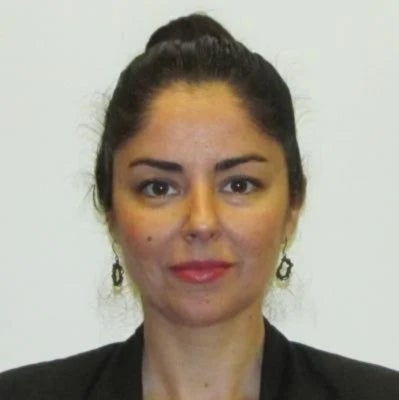
Join Dr. Ceren Gunsoy (Psychology) as she discusses how substance use disproportionately affects minority groups in the United States, specifically individuals from Middle Eastern and North African (MENA) backgrounds. Due to their categorization as white in the U.S. Census and other federal forms, their unique health needs are invisible and inconsistent with their experiences in the U.S., as they have been targets of prejudice and hate crimes. Using qualitative and quantitative methods, the present research investigates the factors associated with substance use among MENA individuals, such as cultural values, perceived discrimination, and mental health.
This event has concluded.


